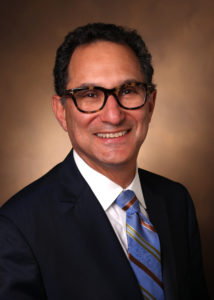- Retina Research Foundation
- About RRF
- Pilot Study Grants
- Grant Recipients 2024
- Samuel M. Wu, PhD
- Yingbin Fu, PhD
- Rui Chen, PhD
- Graeme Mardon, PhD
- Richard L. Hurwitz, MD
- Lih Kuo, PhD
- Wenbo Zhang, PhD
- Curtis Brandt, PhD
- Timothy Corson, PhD
- Jianhai Du, PhD
- Francesco Giorgianni, PhD
- James Monaghan, PhD
- Milam Brantley, MD, PhD
- Seongjin Seo, PhD
- Vladimir Kefalov, PhD
- Andrius Kazlauskas, PhD
- Erika D. Eggers, PhD
- Ann C. Morris, PhD
- Ming Zhang, MD, PhD
- Christine Sorenson, PhD
- Alex J. Smith, PhD
- Jeffrey M. Gross, PhD
- David M. Wu, MD, PhD
- Kinga Bujakowska, PhD
- Eric Weh, PhD
- Ching-Kang Jason Chen, PhD
- Jakub K. Famulski, PhD
- Thanh Hoang, PhD
- Georgia Zarkada, MD, PhD
- Eleftherios Paschalis Ilios, PhD
- Publications
- Grant Guidelines and Information
- Grant Application
- Grant Recipients 2024
- Research Programs
- Contact Us
- Giving
- RRF History
- Home
RRF Award of Merit in Retina Research
Presented by The Retina Society
The Award of Merit in Retina Research was established in 1978 by RRF to recognize outstanding vision scientists whose work contributes to knowledge about the retina and retinal diseases. Funding for the Award of Merit in the amount of $50,000 is provided by Retina Research Foundation through a series of endowed gifts that are dedicated to the Award.
The recipient is chosen by the Awards Committee of the Retina Society, and the selection criteria are:
- A single outstanding achievement in retina research, or;
- A potentially significant contribution to new knowledge about the retina, its role in the visual process and/or vitreoretinal diseases or disorders.
2023 Award of Merit Recipient

SriniVas R. Sadda, MD
University of California – Los Angeles (UCLA), Doheny Eye Institute, Los Angeles, CA
Charles L. Schepens Lecture:
Insights into Pathophysiology of AMD Revealed by High-Resolution
Imaging
Education, Career Achievements, and Research Interests
SriniVas R. Sadda, MD, is the Director of Artificial Intelligence & Imaging Research at the Doheny Eye Institute, and Professor of Ophthalmology at the University of California – Los Angeles (UCLA) Geffen School of Medicine. He is the immediate past President of the Doheny Eye Institute.
Dr. Sadda’s major research interests include retinal image analysis, advanced retinal imaging technologies, and clinical trial endpoint design. His research has been continuously funded by the National Institutes of Health for several years, including a current R01 grant from the National Eye Institute. He has more than 700 peer-reviewed publications and 20 book chapters, and has given over 450 presentations worldwide.
He is President-Elect for the Association for Research in Vision and Ophthalmology and the Macula Society. He received his MD from Johns Hopkins University, where he also completed ophthalmology residency and neuro-ophthalmology and medical retina fellowships at the Wilmer Eye Institute.
2022 Award of Merit Recipient

Edwin M. Stone, MD, PhD
University of Iowa, Carver College of Medicine, Iowa City, IA
Charles L. Schepens Lecture:
Curing Heritable Blindness
Education, Career Achievements, and Research Interests
Edwin M. Stone is the Director of the University of Iowa Institute for Vision Research. He is best known for his work in defining the genetic basis of blinding eye diseases: ranging from two of the most common causes of blindness, macular degeneration and glaucoma, to much rarer conditions like retinitis pigmentosa and Leber congenital amaurosis. Dr. Stone has been very active in removing the technical, legal and financial barriers between genetic discoveries and the patients who could benefit from them. He founded the Carver Nonprofit Genetic Testing Laboratory at the University of Iowa that provides low cost genetic tests to patients in every state of the U.S. and more than 60 other countries. He also created an open-access web-based teaching tool with thousands of downloadable full-resolution images to help physicians around the world improve their ability to diagnose Mendelian retinal diseases (www.stonerounds.org). His current research interest is in developing affordable gene- and stem-cell-based treatments for all molecular forms of inherited retinal disease. Dr. Stone received his M.D. and Ph.D. from the Baylor College of Medicine and his training in ophthalmology and vitreoretinal surgery at the University of Iowa where he joined the faculty in 1990. He holds the Seamans-Hauser Chair of Molecular Ophthalmology in the University of Iowa Carver College of Medicine.
2021 Award of Merit Recipient
Douglas A. Jabs, MD, MBA
Johns Hopkins Bloomberg School of Public Health and School of Medicine, Baltimore, MD
Charles L. Schepens Lecture:
Uveitis Management: What Have We Learned from Clinical Trials?
Education, Career Achievements, and Research Interests
Dr. Jabs is the Director of the Center for Clinical Trials and Evidence Synthesis at the Johns Hopkins University Bloomberg School of Public Health. Prior to his current position, he was the founder of the Division of Ocular Immunology and Uveitis at Wilmer Eye Institute, also at Johns Hopkins University School of Medicine.
Dr. Jabs is an internationally-recognized expert in the evaluation and management of patients with uveitis and related immune-mediated ocular disorders, with a long track record in clinical trials, cohort studies and translational research. Dr. Jabs has served as the chair of numerous NIH-funded multi-center, national and international, randomized, comparative effective trials and of long-term prospective cohort studies. He has authored over 320 peer-reviewed journal articles and over 45 book chapters.
2020 Award of Merit Recipient

Russell Van Gelder, MD, PhD
University of Washington, Seattle WA
Charles L. Schepens Lecture:
Could small molecule photoswitches be the ‘miracle’ of vision restoration?
Education, Career Achievements, and Research Interests
Dr. Van Gelder grew up in and around New York City. He earned his BS, MD, and PhD degrees from Stanford University. Dr. Van Gelder completed his ophthalmology residency and uveitis and medical retina fellowship at Washington University in St. Louis. He remained on faculty at Washington University from 1999 until 2007, serving as Residency Program Director and Director of the Uveitis Service.
Dr. Van Gelder is an active clinician-scientist and teacher. His research has been continuously funded by the NIH since 1999. His laboratory has been at the forefront of two fields, non-visual photoreception and pathogen detection in uveitis. As a graduate student, he developed the amplified RNA technique used in almost all gene expression profiling experiments. In the field of non-visual photoreception, his laboratory has made a number of seminal discoveries. The Van Gelder laboratory developed assays allowing characterization of the photoreceptive properties of cryptochrome proteins; helped establish the importance of melanopsin in non-visual photoreception; was first to demonstrate multiple physiologic subtypes of intrinsically photosensitive retinal ganglion cells; established that that the melanopsin photocycle is distinct from that of rods and cones; and most recently demonstrated the presence of a novel photoreceptive pathway in the retina utilizing the orphan opsin neuropsin. His laboratory has also been at the forefront of optochemical approaches to vision restoration. In the area of uveitis, his laboratory pioneered application of multiplex and real-time PCR to ocular pathogen detection; developed the Biome Representational in Silico Karyotyping (BRiSK) methodology for representational deep DNA sequencing; performed the definitive characterization of the ocular surface microbiome; and discovered that torque teno virus is a highly prevalent on the ocular surface and found in the vitreous in culture-negative endophthalmitis. Most recently his group has been first to apply machine learning techniques to analysis of microbial pathogenicity.
He has published over 180 papers and book chapters, and holds five patents. His Google Scholar h-index is 48 and i10 index is 100. His weighted NIH iCite relative citation ratio is 210. Dr. Van Gelder has won numerous awards for his research, including the Research to Prevent Blindness Career Development Award, the Translational Scientist Award of the Burroughs-Wellcome Foundation, the Heed-Gutman award of the Heed Foundation, and an ‘Audacious Goals’ award of the National Eye Institute. He was the 2017 recipient of the Bressler Prize of the Lighthouse Guild. He has been named a ‘Seattle Metropolitan Magazine Best Doctor’ in each of the past 10 years. He has given over 20 named lectures and over 100 invited talks.
Dr. Van Gelder is past Associate Editor of IOVS and serves on the editorial board of Ophthalmology. He previously served on the editorial board of American Journal of Ophthalmology. Nationally, he served in 2015 as President of the American Academy of Ophthalmology, having previously served as chair of the AAO Council. He currently serves on the National Advisory Eye Council of the NEI and on the Council of Councils of the NIH Director. He is also past president of the American Uveitis Society and was 2018 President of the Association of University Professors of Ophthalmology.
Prior to moving to University of Washington, he held the Bernard Becker Professorship at Washington University. Since 2008, Dr. Van Gelder has been the Boyd K. Bucey Memorial Chair, professor and chairman of the Department of Ophthalmology at University of Washington in Seattle, where he also serves as founding director of both the UW Medicine Eye Institute and the University of Washington Vision Science Center. He lives near Seattle Washington with his wife Suzy, a professor of pathology at UW. They have two children, one in college and one in graduate school.
2019 Award of Merit Recipient
James Fujimoto, PhD
Massachusetts Institute of Technology, Cambridge, MA
Awarded at the Retina Society Annual Meeting, September 11 – 15, 2019, London, UK
Education, Career Achievements, and Research Interests
Dr. James Fujimoto is Elihu Thomson Professor of Electrical Engineering and Computer Science at the Massachusetts Institute of Technology. He is also Visiting Professor of Ophthalmology at Tufts University School of Medicine, Adjunct Professor at the Medical University of Vienna and has an Honorary Doctorate from the Nicolaus Copernicus University in Poland.
Dr. Fujimoto’s group and collaborators were responsible for the invention and development of optical coherence tomography (OCT). He has published over 450 peer-reviewed journal articles and co-edited over 10 books. Working with Carmen Puliafito and Eric Swanson, he was a co-founder of the startup company Advanced Ophthalmic Devices which developed ophthalmic OCT and was acquired by Carl Zeiss. With Eric Swanson and Mark Brezinski, he was also co-founder of LightLab Imaging, which developed cardiovascular OCT and was later acquired by Goodman, Ltd and St. Jude Medical. Dr. Fujimoto was co-recipient of the Champalimaud Vision Prize in 2012, the National Academy of Engineering Fritz J. and Dolores H. Russ Award in 2017 and the European Inventor Award in 2017. He also received the Zeiss Research Award in 2011, the Optical Society of America Ives Medal in 2015 and the Beckman-Argyros Award in Vision Research in 2017. Dr. Fujimoto is a member of the National Academy of Engineering, National Academy of Sciences and American Academy of Arts and Sciences.
2018 Award of Merit Recipient

photo: Anne Rayner; Vanderbilt
Paul Sternberg, Jr., MD
Vanderbilt Eye Institute, Vanderbilt University Medical Center, Nashville, TN
Awarded at the Retina Society Annual Meeting, September 13, 2018, San Francisco, CA
Charles L. Schepens Lecture:
Regenerative Visual Neuroscience: How it will Transform Eye Care
Education, Career Achievements, and Research Interests
Dr. Paul Sternberg, Jr. is the G. W. Hale Professor of Ophthalmology and Chairman of the Vanderbilt Eye Institute of the Vanderbilt University School of Medicine in Nashville, Tennessee. He is a renowned retinal specialist, and has been named one of the Best Doctors in America for both medical and surgical retinal conditions every year since 1994. He maintains an active academic and research program, studying the pathogenesis of age-related macular degeneration. He has authored more than 250 scientific articles and 30 book chapters, and received research funding from the NIH, numerous foundations, and industry. Honors include the AAO Lifetime Achievement Award, the Heed Ophthalmic Foundation Award, Lew Wasserman Award of Merit from Research to Prevent Blindness, the Distinguished Service Award from ARVO, and the Sommer Prize from the EyeCare Foundation. In 2009, he took on additional leadership responsibilities at Vanderbilt as Associate Dean for Clinical Affairs, Chief Medical Officer, and Assistant Vice Chancellor for Adult Health Affairs. In 2014, he was also named Chief Patient Experience Officer.
Dr. Sternberg is a graduate of Harvard College and University of Chicago Pritzker School of Medicine. After a residency in ophthalmology at the Wilmer Eye Institute at Johns Hopkins, he completed a vitreoretinal fellowship at Duke University Eye Center, before returning to Wilmer as Chief Resident. In 1985, he joined the faculty at Emory University in Atlanta, where he was Chief of the Retina Division and the Thomas M. Aaberg Professor. He was recruited to Vanderbilt in 2003.
Dr. Sternberg has a long history of leadership in ophthalmology, highlighted by serving as President of the American Academy of Ophthalmology in 2013. From 2000-2005, he served as the Academy Secretary for Communications, and was an Academy Trustee-At –Large from 2006-2009. Dr. Sternberg served on the Board of Trustees for the Association for Research in Vision and Ophthalmology (ARVO) from 2005-2010, where he was Vice President from 2009-2010. In addition, he has served on the Board of Scientific Counselors for the National Eye Institute, the Board of Directors of the International Retinal Research Foundation, the Board of Directors of the Tennessee Academy of Ophthalmology, and has been President of the Macula Society and the Georgia Society of Ophthalmology. Recently he was named to the Board of Directors for the Association of University Professors of Ophthalmology and to the Board of Governors for the ARVO Foundation, where he serves as Treasurer and will take over as Chair in 2018. In 2017, Dr. Sternberg will complete his tenure as Chair of the Board of Trustees of the Society of Heed Fellows.
Dr. Sternberg is married to Gloria Sternberg, and they have two sons, Matthew and Zachary. He and his wife are avid collectors of contemporary photography. As well, Dr. Sternberg loves to run, play golf, and ski. Dr. Sternberg is the past Chairman and an honorary lifetime trustee of the Board of Trustees for the Cheekwood Botanical Garden and Museum of Art in Nashville, past President of the Canby Robinson Society Board at Vanderbilt University Medical Center, and serves on the Board of Trustees for Leadership Nashville.
http://www.retinasociety.org/Awards
Previous Award of Merit Recipients
2022 Edwin M. Stone, MD, PhD
2021 Douglas A. Jabs, MD, MBA
2020 Russell Van Gelder, MD, PhD
2019 James Fujimoto, PhD
2018 Paul Sternberg, Jr, MD
2017 Michael Klein, MD
2016 Steve Charles, MD
2015 Thomas W. Gardner, MD
2014 Peter A. Campochiaro, MD
2013 Cynthia A. Toth, MD
2012 Richard F. Spaide, MD
2011 Michael F. Marmor, MD
2010 Eliot Berson, MD
2009 Mark Humayun, MD, PhD
2008 William Tasman, MD
2007 Lloyd Paul Aiello, MD
2006 Carol Shields, MD
2005 Anthony Adamis, MD
2004 Frederick Ferris, III, MD, and Emily Chew, MD
2003 Stephen Ryan, MD
2002 Bradley Straatsma, MD
2001 no award given
2000 Ronald Klein, MD, MPH, and Barbara Klein, MD, MPH
1999 Lawrence A. Yannuzzi, MD
1998 Joe Hollyfield, PhD
1997 Stuart L. Fine, MD
1996 Gabriel Coscas, MD
1995 D. Jackson Coleman, MD
1994 Francois DeLori, PhD, and C. Katherine Dorey, PhD
1993 W. Richard Green, MD
1992 Ingrid Kreissig, MD
1991 Ronald G. Michels, MD, and Burt M. Glaser, MD
1990 Matthew M. LaVail, PhD
1989 Matthew D. Davis, MD
1988 Harvey A. Lincoff, MD
1987 Harris Ripps, PhD
1986 J. Donald Gass, MD
1985 Oleg Pomerantzeff, D Eng
1984 Werner K. Noell, MD
1983 Arnall Patz, MD
1982 Harry G. Sperling, PhD
1981 John E. Dowling, PhD
1980 Robert Machemer, MD
1979 Richard W. Young, MD
1978 Charles L. Schepens, MD



